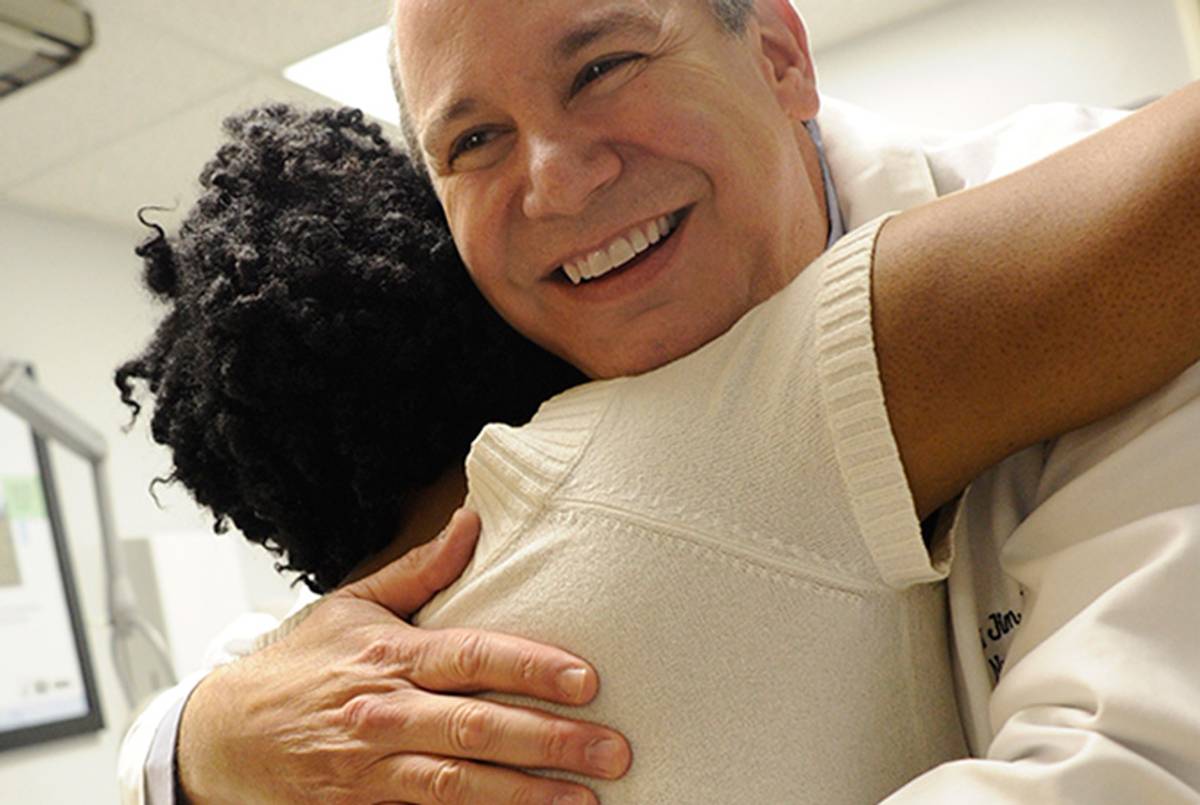How an Alabama Doctor Became a Rabbi to His Patients at a Groundbreaking AIDS Clinic
In his memoir ‘Positive,’ Michael Saag warns that our broken health care system is more dangerous than the AIDS epidemic

Back in the early 1980s, two populations found their lives upended by the AIDS epidemic in America. There were, of course, those infected by the virus, along with everyone who cared for them. And then there were the medical professionals—researchers, doctors—desperately scrambling to figure out where the virus came from and how to interrupt its terrible progression. In 1981, Dr. Michael Saag unexpectedly found himself at the center of the latter group. At the time, Saag was just beginning a residency in internal medicine at the University of Alabama at Birmingham. By the following year, he had helped open the 1917 Clinic, a comprehensive AIDS treatment and research center at UAB.
In a new memoir called Positive: One Doctor’s Personal Encounters With Death, Life, and the U.S. Healthcare System, Saag looks back on those years—the successes, failures, and remarkable people he met along the way. He also offers a scathing critique of the U.S. healthcare system, which he sees as posing an equal or greater challenge than HIV did for those concerned with taking care of the most vulnerable people in our society. On today’s podcast, he talks with Tablet Magazine Editor Wayne Hoffman about his experiences, the lessons he learned, and the Jewish values he brought to the work.
- Vox TabletSo Long, FarewellAfter 11 years and 500 episodes, Vox Tablet signs off for good
- Vox TabletTanya’s StoryHow a young woman learned the painful lesson that there are times when trying to do what’s ‘right’ can go very, very wrong
- Vox TabletA New Kind of Prayer BookThe Conservative movement’s latest siddur goes way beyond traditional liturgy
- Vox TabletHey, Mister DJ: Put a (Diaspora-Blending, Genre-Bending) Record OnBooty-shaking new music from A-Wa, Sandaraa, and Schizophonia
- Vox TabletWhat’s Free Will Got To Do With It?Especially in election season, we love talking about the moral fiber (or lack thereof) of our candidates. But when it comes to ethics, no man—or woman—is an island.
- Vox TabletBuilders of a New JerusalemIn a new book, Adina Hoffman brings to life three architects who transformed the city in the days of the British Mandate
- Vox TabletBathe in the WatersA radio documentary asks: Is there a way for women to dunk ritually that doesn’t conflict with their feminism?
- Vox TabletBeyond DrakeA handful of personalities come to mind when we think of African-American Jews. Let’s change that.
- Vox TabletThe Saddlemaker, the Schindler, and the Miller of WlodowaGolems, messiahs, tradesmen, Nazis, and townspeople converge in the story collection ‘In the Land of Armadillos’
- Vox TabletA Year of FirstsAn audio portrait of Luzer Twersky, just after he quit his life as a Hasid, and long before he played one in films
- Vox TabletFor the Love of Suzie Louise: A Christmas StoryIn middle-century Skokie, a young Jewish boy searches for a stolen Jesus to comfort his bereft Christian girlfriend
- Vox TabletThe Most Haunted Leading ManIn ‘Son of Saul,’ actor Géza Röhrig defies our every expectation of a Holocaust movie hero
- Vox TabletGirlhood, InterruptedCynthia Kaplan Shamash fled Iraq 40-odd years ago, when she was just a kid. Her flight foreshadowed that of young refugees fleeing Syria now. Where did she land? Where will they?
- Vox TabletLet ‘Freedom’ Ring: A Flutist Gives Life to Musical Celebrations of LiberationsMimi Stillman’s new album features works inspired by upheaval in Europe and the Middle East
- Vox TabletPuzzle MasterFor years, scholars dismissed the Arabic on text fragments from Cairo’s genizah as unimportant scribbling. Then along came Marina Rustow, bona fide ‘genius.’
- Vox TabletMy Grandfather, the Secret PolicemanRita Gabis knew only that her mother’s Catholic family came from Lithuania after the Holocaust. Then she started asking hard questions.
- Vox TabletBeyond the PulpitWhat does a rabbi do in late August when he no longer needs to prep for High Holidays?
- Vox TabletAndré Aciman, Sarah Wildman, and Others Build a Summer Reading ListLooking for a good book to sink into at the beach in these waning dog days? Friends share what they’ve loved lately.